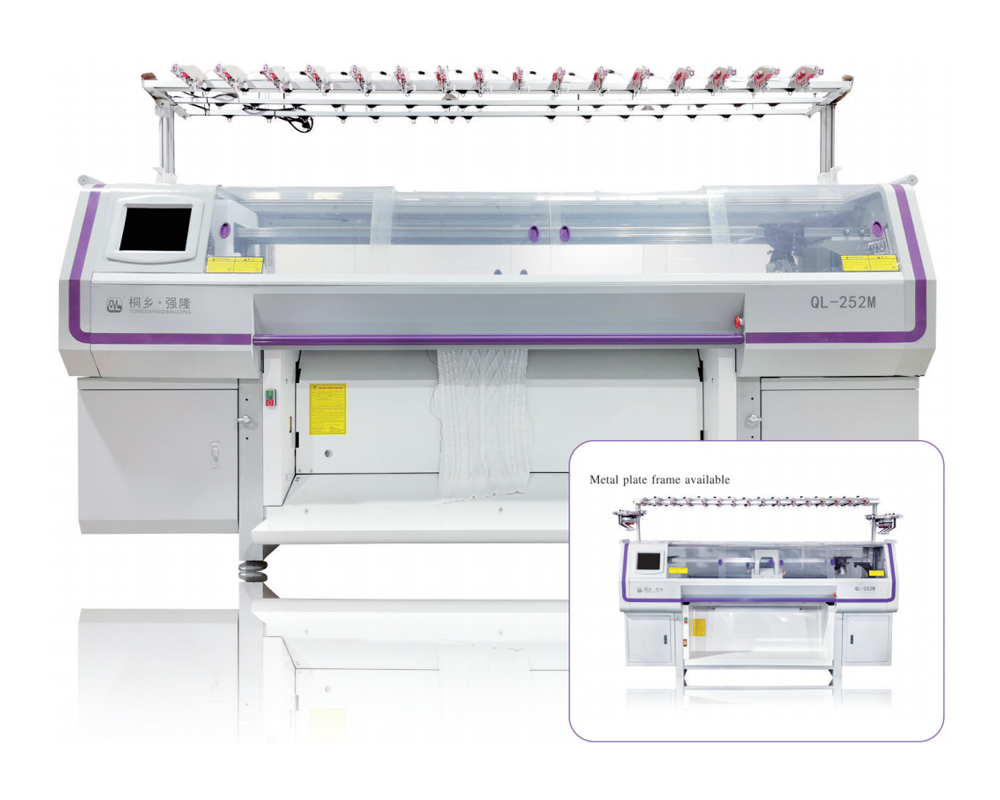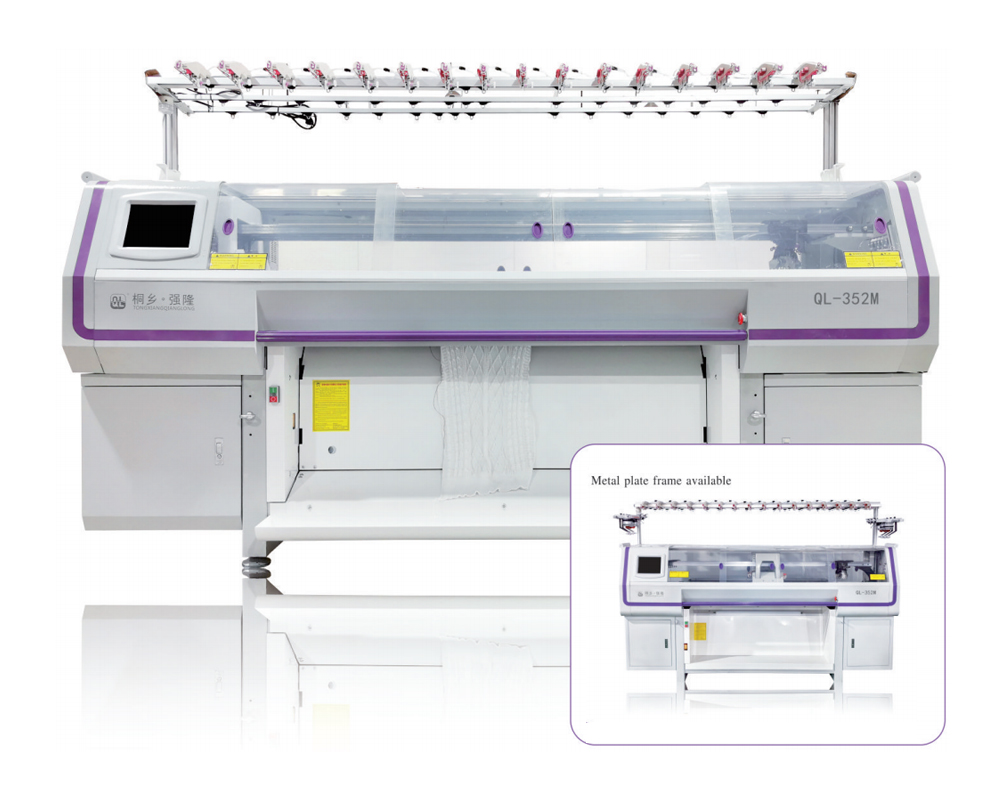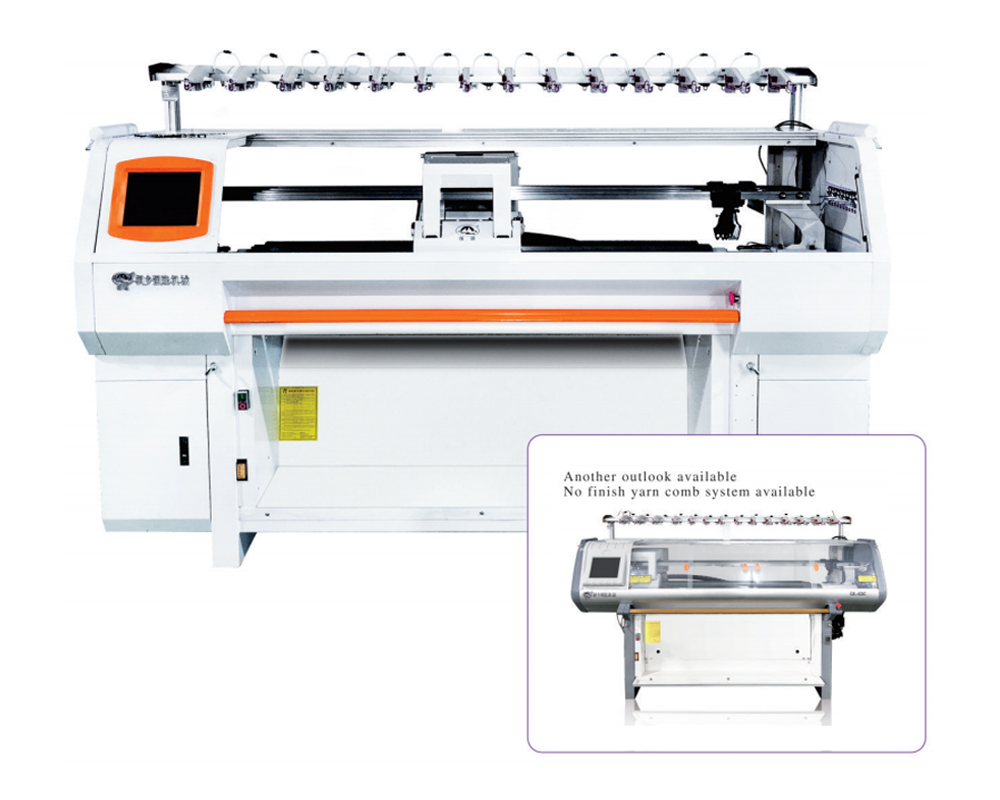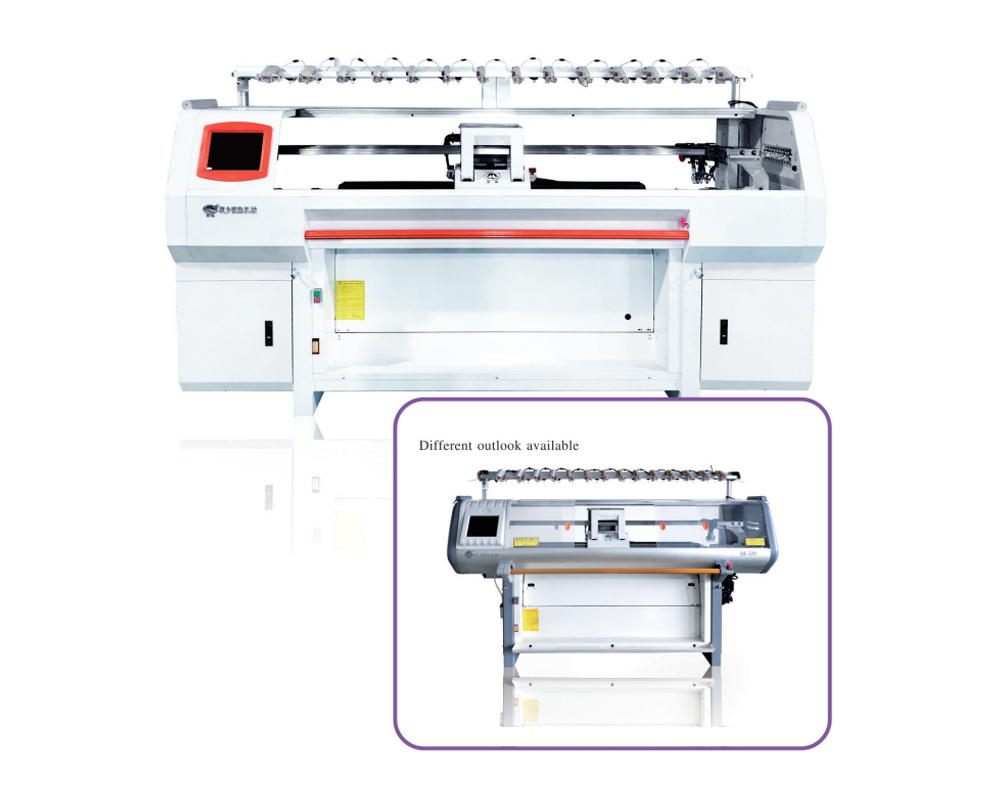Tongxiang Qianglong Machinery Co., Ltd. is high-tech China wholesale computerized flat knitting machine manufacturers, specialized in designing, developing, and manufacturing Knitting Machinery..
Computerized knitting machines are compatible with a wide range of yarn types, but the suitability of a specific yarn will depend on factors such as the machine's gauge, needle size, and intended use. Here are some common types of yarn that are compatible with computerized knitting machines:
Standard Yarn: Most computerized knitting machines can work with standard yarn weights, including fingering, sport, DK (double knitting), worsted, and bulky. These yarns are readily available and come in a variety of fibers, including wool, acrylic, cotton, and blends.
Specialty Yarn: Computerized knitting machines can also handle specialty yarns, such as novelty yarns, bouclé, chenille, eyelash, and metallic yarns. These yarns add texture, dimension, and visual interest to knitted fabrics and garments.
Fine Yarn: Fine or lightweight yarns, such as lace weight or sock weight yarns, can be used with computerized knitting machines to create delicate and intricate designs with fine stitch definition.
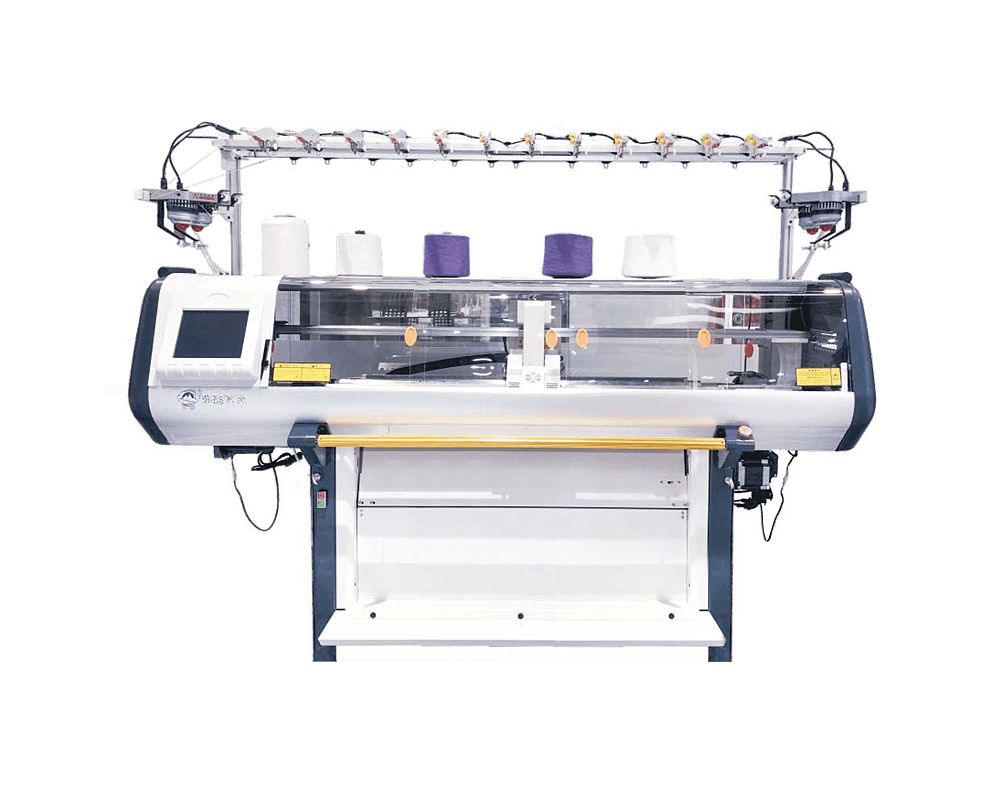
Thick Yarn: Thick or bulky yarns are compatible with computerized knitting machines equipped with larger gauge needles. These yarns produce chunky, cozy fabrics and are ideal for winter accessories, blankets, and outerwear.
Elastic Yarn: Some computerized knitting machines are designed to work with elastic or stretchy yarns, such as Lycra or spandex blends. These yarns are commonly used for knitting garments that require elasticity and shape retention, such as activewear, swimwear, and lingerie.
Specialty Fibers: In addition to traditional yarns, computerized knitting machines can handle specialty fibers such as bamboo, silk, alpaca, mohair, and cashmere. These luxury fibers offer softness, warmth, and drape, and are suitable for creating premium-quality fabrics and garments.
When choosing yarn for a computerized knitting machine, it's essential to consider factors such as the machine's gauge, needle size, and recommended yarn weights. Some machines may have specific requirements or limitations regarding yarn compatibility, so it's advisable to consult the manufacturer's instructions or guidelines before selecting yarn for a particular project. Additionally, experimenting with different yarns and settings can help users achieve desired results and explore creative possibilities with their computerized knitting machine.
Standard Yarn: Most computerized knitting machines can work with standard yarn weights, including fingering, sport, DK (double knitting), worsted, and bulky. These yarns are readily available and come in a variety of fibers, including wool, acrylic, cotton, and blends.
Specialty Yarn: Computerized knitting machines can also handle specialty yarns, such as novelty yarns, bouclé, chenille, eyelash, and metallic yarns. These yarns add texture, dimension, and visual interest to knitted fabrics and garments.
Fine Yarn: Fine or lightweight yarns, such as lace weight or sock weight yarns, can be used with computerized knitting machines to create delicate and intricate designs with fine stitch definition.

Thick Yarn: Thick or bulky yarns are compatible with computerized knitting machines equipped with larger gauge needles. These yarns produce chunky, cozy fabrics and are ideal for winter accessories, blankets, and outerwear.
Elastic Yarn: Some computerized knitting machines are designed to work with elastic or stretchy yarns, such as Lycra or spandex blends. These yarns are commonly used for knitting garments that require elasticity and shape retention, such as activewear, swimwear, and lingerie.
Specialty Fibers: In addition to traditional yarns, computerized knitting machines can handle specialty fibers such as bamboo, silk, alpaca, mohair, and cashmere. These luxury fibers offer softness, warmth, and drape, and are suitable for creating premium-quality fabrics and garments.
When choosing yarn for a computerized knitting machine, it's essential to consider factors such as the machine's gauge, needle size, and recommended yarn weights. Some machines may have specific requirements or limitations regarding yarn compatibility, so it's advisable to consult the manufacturer's instructions or guidelines before selecting yarn for a particular project. Additionally, experimenting with different yarns and settings can help users achieve desired results and explore creative possibilities with their computerized knitting machine.

 English
English 简体中文
简体中文
 Chinese
Chinese English
English
